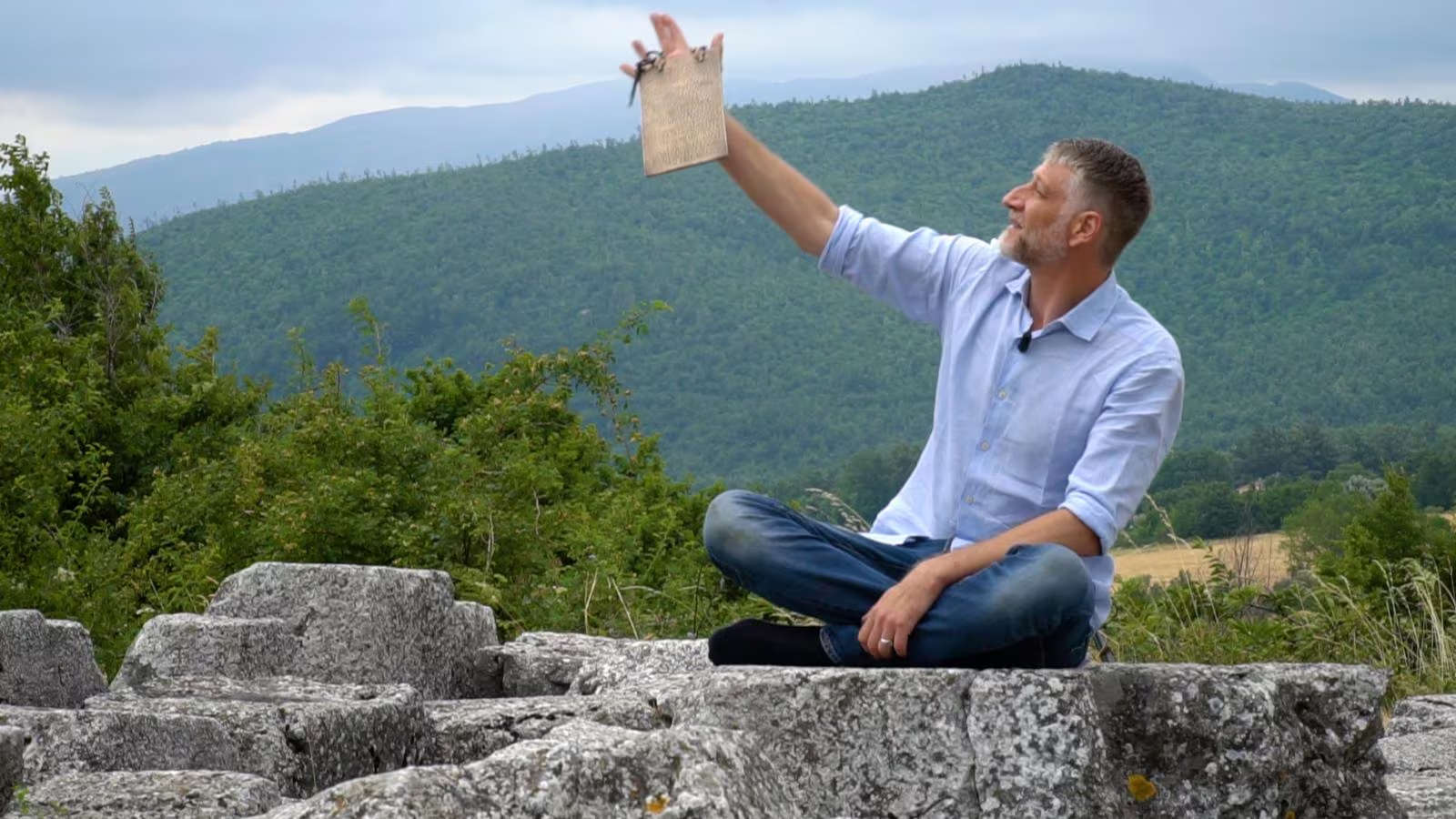What is Vitalia, the TV program hosted by Alessandro Giuli
In recent hours there has been frequent talk about Vitalia - At the Origins of the Feast, the television program conceived and hosted by Alessandro Giuli, the current minister of culture, which was broadcast on Rai 2 between 2021 and 2022 (in all, two seasons were produced, both of which are still available in full on RaiPlay). The format aimed to explore the roots of Italy’s intangible cultural heritage, particularly through the recovery of ancient religious traditions and rituals related to Italic, Roman, and pre-Roman peoples. The program was based on a historical and anthropological approach (scholars in the field not infrequently intervened in the broadcast), with focus on the festivals of the ancients, and in some cases also with episodes on festivals that still exist today (such as Carnival), showing how many of them are deeply connected to archaic cults that still survive in various forms today.
Each installment focused on a specific festival or ritual, exploring its historical and symbolic origins. Giuli would often start its narrative in places of great archaeological and spiritual significance, such as sites of ancient Rome or pre-Roman civilizations. The episodes thus went in search of ancient liturgies. A significant example is the episode devoted to Carnival, where the origins of masks and disguises are explored, going back to the orgiastic rites of Dionysus, linked to concepts of death and rebirth.
Among the topics covered, particular importance was given to the rediscovery of cults associated with natural elements, such as those related to water, fertility deities , and woodland spirits. An example is the episode that took viewers on a discovery of water cults in Campania and Lazio, linked to the Madonna of the Waters and the pre-Christian rites of the goddess Mephitis, worshipped for the purifying and fertilizing power of springs. A recurring theme in the program is that of the life cycle, represented by rites celebrating death and rebirth, such as the Bacchanalia and other Dionysian festivals. Giuli also explored the influence of these ancient celebrations on modern culture, such as the taranta in Apulia, where dances related to the worship of Dionysus mingle with Christian practices such as the worship of St. Paul. Again, in the case of the Feast of the Serpari of Cocullo, it is highlighted how the cult of St. Dominic the Abbot is a direct legacy of rituals linked to the serpent goddess Angitia, an ancient figure worshipped by the Marsi.
Host Alessandro Giuli made use of a narrative in which he himself placed himself as the protagonist of the program, as well as a visual setting very much focused on the places visited (particularly the archaeological sites), not disdaining the presence of costumed figurants to evoke the ancient rituals (complete with singing and dancing) that Giuli talked about in each episode. Giuli himself sometimes tried his hand at playing ancient musical instruments. The program also sometimes mixed modern footage with archival content from the Teche Rai, creating a link between past and present.
The program thus wanted to take viewers through a journey that would enhance local traditions and the collective memory of an ancient and spiritual Italy. Vitalia was thus an entirely peculiar product that aimed to attract an audience interested in the anthropological and mystical roots of our country. At the time of its airing, it went rather unnoticed, and is instead making a comeback these days (also due to theirony of social users who are targeting a Giuli who precisely on the occasion of Vitalia wore the shoes of the popularizer for the first time): will this be the prelude to a new airing of the program?
 |
| What is Vitalia, the TV program hosted by Alessandro Giuli |
Warning: the translation into English of the original Italian article was created using automatic tools. We undertake to review all articles, but we do not guarantee the total absence of inaccuracies in the translation due to the program. You can find the original by clicking on the ITA button. If you find any mistake,please contact us.




























